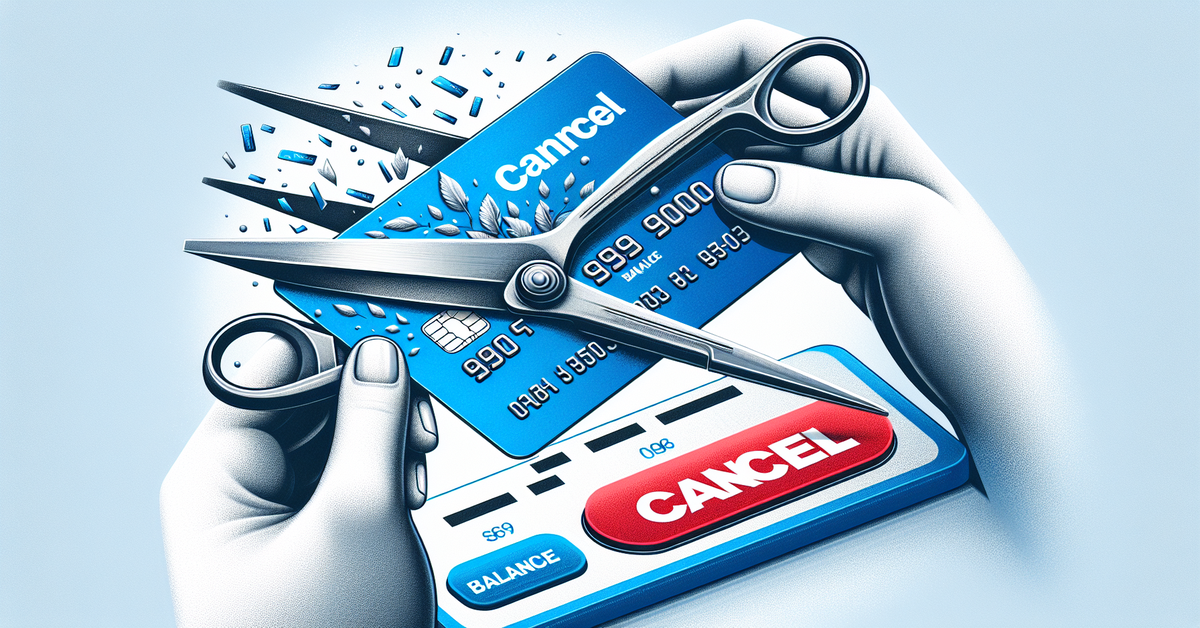You might think canceling a credit card with a balance is straightforward, but it can complicate your financial situation. While you can indeed close the account, doing so without addressing the outstanding balance can lead to unexpected consequences for your credit score. Understanding these implications is essential if you're considering this option. So, what steps should you take to guarantee a smooth changeover and protect your credit health?
Understanding Credit Card Balances
Understanding your credit card balance is essential, as it directly impacts your financial health and credit score. Your balance reflects how much you owe, and keeping track of it helps you manage your spending wisely. If you carry a high balance, it can lead to increased interest charges, making it harder to pay off over time. Regularly reviewing your statements allows you to spot unauthorized charges or errors, ensuring your account remains secure. Always aim to pay your balance in full each month to avoid interest and maintain a healthy credit utilization ratio. By staying informed about your balance, you can make smarter financial decisions and keep your overall financial situation safe and sound.
Impact on Your Credit Score
Your credit score can be greatly affected if you decide to cancel a credit card while still carrying a balance. When you cancel a card, especially one with a high credit limit, you reduce your overall available credit. This can increase your credit utilization ratio, a key factor in your score. A higher ratio can signal risk to lenders, potentially lowering your score.
Additionally, canceling a card may shorten your credit history if it's one of your older accounts. Lenders prefer a longer credit history, as it shows responsible credit management. If you're concerned about your credit score, consider paying off the balance before canceling the card to minimize the impact. Always weigh your options carefully.
Steps to Cancel a Credit Card
Canceling a credit card involves several important steps to guarantee the process goes smoothly and minimizes any potential negative impacts on your finances. First, pay off your balance completely; this prevents interest charges and simplifies cancellation. Next, contact your credit card issuer to request cancellation; you can typically do this via phone or online. Make certain to confirm that the cancellation is processed and ask for written confirmation. Before you hang up, inquire about any remaining rewards or benefits. Finally, monitor your credit report for a few months to ascertain the account is marked as closed and that there are no lingering issues. Following these steps can help you navigate the cancellation safely and effectively.
Alternatives to Cancellation
If you're hesitant to cancel your credit card due to an outstanding balance, there are several alternatives you might consider to manage your finances more effectively. Here are four options to think about:
- Transfer the Balance: Move your balance to a card with a lower interest rate.
- Make a Payment Plan: Set up a structured plan to pay off your balance gradually.
- Negotiate with Your Lender: Contact your credit card issuer to discuss potential hardship programs or lower interest options.
- Use Budgeting Tools: Implement a budgeting app to better track your spending and payment priorities.
These approaches can help you maintain your credit score while managing your debt more safely. Always explore your options before making significant financial decisions.
Managing Your Remaining Balance
Managing the remaining balance on your credit card is essential for maintaining financial health and avoiding unnecessary stress. Start by reviewing your statement to understand your current balance and interest rate. Prioritize paying down high-interest balances first, as this can save you money in the long run. Consider setting up automatic payments to guarantee you never miss a due date, which can help maintain a good credit score. If possible, aim to pay more than the minimum payment each month to reduce your balance more effectively. Additionally, avoid accumulating more debt by refraining from new purchases until your balance is manageable. By staying proactive, you can maintain control over your finances and work toward a debt-free future.
Seeking Professional Advice
Seeking professional advice can be an essential step when maneuvering through the complexities of canceling a credit card with an outstanding balance. Consulting with a financial advisor or credit counselor can provide you with tailored guidance to navigate your specific situation. Here are four key reasons to seek help:
- Understanding Consequences: Professionals can clarify how canceling might impact your credit score.
- Debt Management: They can assist in creating a plan to pay off your balance effectively.
- Negotiation Tips: Experts can advise on negotiating terms with your credit card issuer.
- Future Planning: They can help you strategize for future credit use to avoid similar issues.
Taking these steps can guarantee you make informed, safe decisions regarding your finances.



